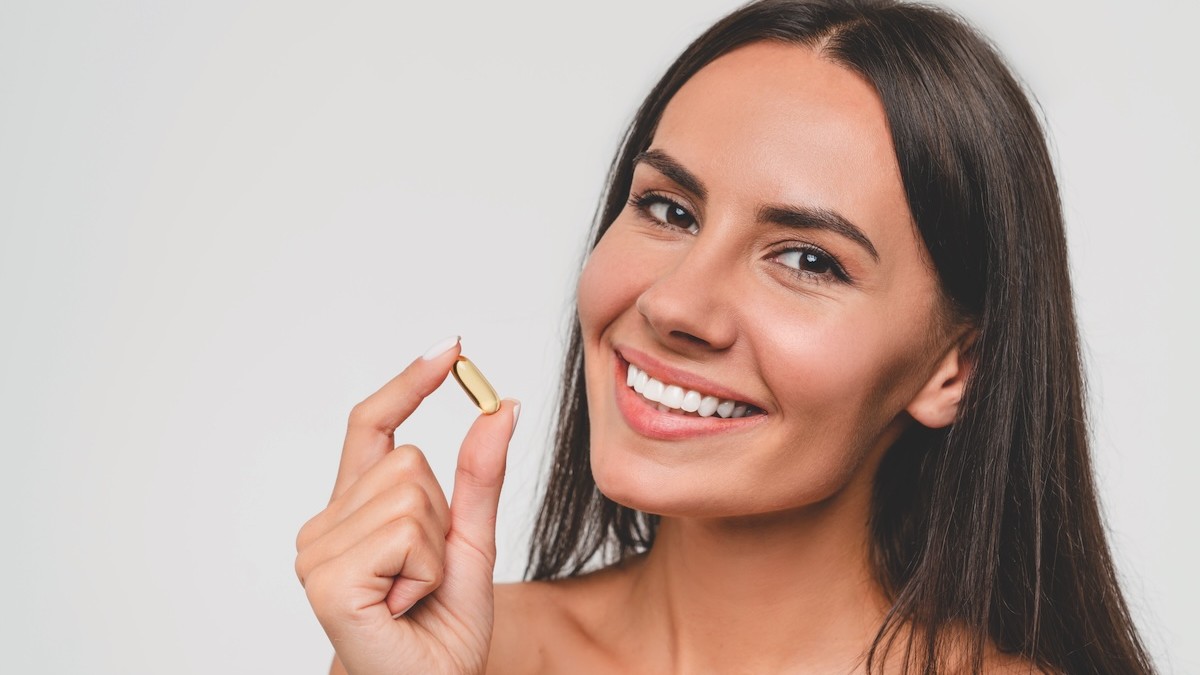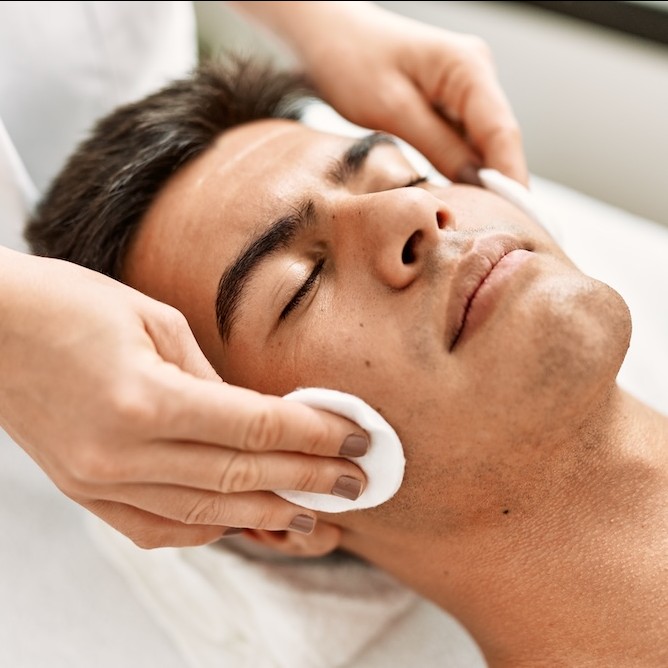Here's how evolving nutrition trends – from gut health to brain-boosting nutrients – are reshaping beauty, wellness and client results in 2025 and beyond
With a multitude of nutritional trends popping up on social media, we explore which ones beauty professionals should know about.
Why nutrition matters more than ever for beauty professionals
As the worlds of beauty and wellness increasingly overlap, understanding the nutrition trends shaping both skin health and performance is more essential than ever.
We asked the experts to shed light on the biggest trends that beauty professionals need to know.
Fibremaxxing: the plant-powered trend boosting skin and gut health
The trend
The average UK adult consumes 18g of dietary fibre daily, which is significantly below the recommended 30g. This shortfall has prompted initiatives like the Food and Drink Federation’s “Action on Fibre”, which delivered 118 million extra servings of fibre to the population in 2024 by working with brands on recipe adaptations and product launches.
The “fibremaxxing” trend, popularised on TikTok, encourages individuals to intentionally increase their fibre intake by incorporating fibre-rich foods such as fruits, vegetables, legumes, seeds and wholegrains into every meal. This approach aims to bridge the fibre gap and promote better digestive health.
Why it matters for beauty pros
Fibre’s benefits extend far beyond digestion. It helps stabilise blood sugar, manage satiety and supports digestive health, which is fundamental for skin radiance.
What the experts say
Lorraine Perretta, head of nutrition at Advanced Nutrition Programme, says that not all fibre is the same, explaining, “Fibres are bound to plant chemicals called polyphenols, and fibres are sold either as complete fibres (bound to these special polyphenols) or ‘isolated’ fibres. Consumers need to understand the difference when choosing a product to support their needs.”
She adds that healthy gut flora are essential to release these polyphenols – the antioxidants that help “reduce inflammation, promote collagen and ceramide synthesis resulting in stronger skin barrier”.
Kirsten Humphreys, nutritional therapist at Bare Biology, emphasises the importance of variety and caution, saying, “The ‘fibremaxxing’ trend has taken off this year, but increasing fibre too quickly can cause bloating, constipation or diarrhoea.
"The best approach is to increase gradually, aim for half a plate of plants at each meal, and focus on variety. Over time, better gut health can show up as steadier energy, clearer skin, more balanced mood and stronger resilience.”
Key takeaway
Guide clients to increase fibre thoughtfully, focusing on plant diversity, hydration and gradual increments.
Fibremaxxing isn’t just about digestion; it also supports the gut microbiome, which in turn can enhance energy, mood and the skin’s natural resilience.

Functional mushrooms: what beauty pros need to know about lion’s mane, reishi and more
The trend
Functional mushrooms like lion’s mane, reishi and cordyceps are booming in popularity. Globally, the market is forecast to grow from $33.7 billion (£24.8bn) in 2025 to $62.2 billion (£45.7bn) by 2032, with a compound annual growth rate (CAGR) of 9-11%, according to Fortune Business Insights.
In the UK alone, the market is expected to double from about £679m in 2023 to over £1.08bn by 2025, at a roughly 12% CAGR, according to Cognitive Market Research’s Global Functional Mushrooms Market Report 2025.
On the consumer side, the movement away from alcohol and regular coffee is nudging this trend forward – online supermarket Ocado reported a 54% year-on-year surge in functional drink sales, with mushroom coffee searches up 1,552%, while Marks & Spencer now stocks lion’s mane lattes and reishi shots.
Why it matters for beauty pros
Nutrients and bioactive compounds in mushrooms may support focus, stress resilience and immune function, all of which influence how clients look and feel – although research is still ongoing, so tread with caution when making any claims to clients.
What the experts say
Humphreys says, “Functional mushrooms like lion’s mane, reishi and cordyceps have exploded in popularity. Early research is promising – lion’s mane is being studied for cognitive support, reishi for stress and immune balance, and cordyceps for energy and endurance.
"However, the evidence is still emerging, and responses vary. Some people may experience skin reactions or digestive upset. Personally, I’ve noticed positive effects on energy, mood and skin, but results will differ from person to person.”
Key takeaway
Functional mushrooms are an exciting addition to the wellness conversation, offering potential support for focus, stress resilience and immune health. Beauty professionals could encourage clients to start with a single mushroom type from a reputable brand, monitoring tolerance and skin response.
You might also like: Why wellness retreats are adding psychedelics to their offering
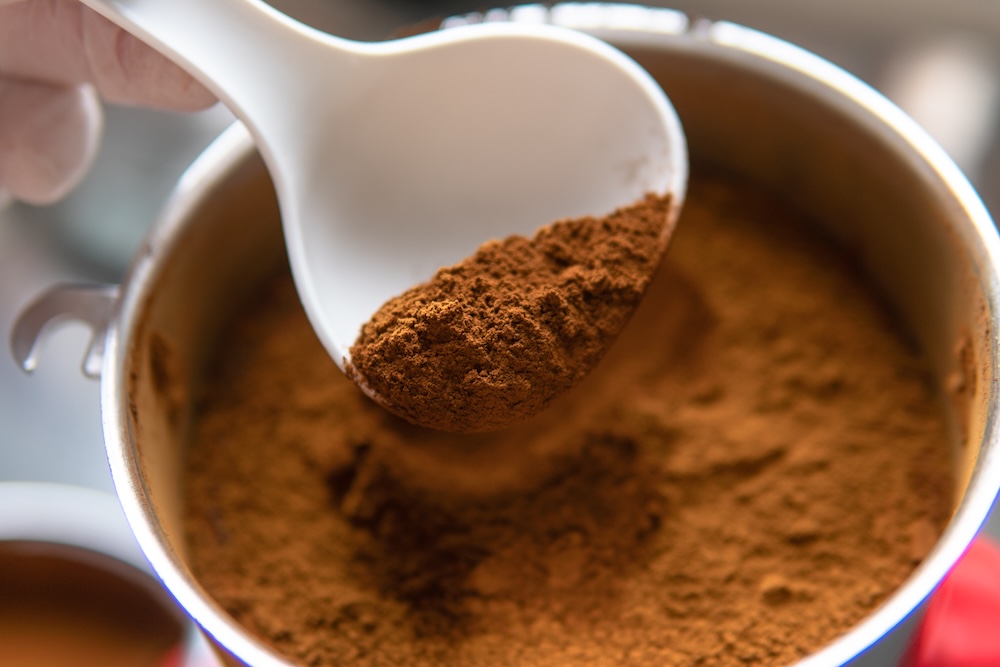
Gut health and fermented foods: the gut-skin axis goes mainstream
The trend
Gut health has entered the mainstream like never before. Fermented foods, from kimchi and sauerkraut to kefir and miso, are increasingly appearing on supermarket shelves and in kitchens, while probiotic supplements continue to see strong demand.
Social media also reflects the trend: searches for gut-friendly foods on Pinterest have grown by over 60% in the past year, while TikTok videos showcasing probiotic recipes and fermented food hacks regularly garner hundreds of thousands of views.
Why it matters for beauty pros
The gut-skin axis is no longer speculative, as emerging evidence is linking gut health to immune regulation, inflammation control and skin barrier resilience. Integrating gut-friendly advice can complement topical treatments, helping clients achieve a more radiant complexion from the inside out.
What the experts say
Perretta notes a spike in studies, saying, “An explosion in research into this area is evidenced by a 300% increase in scientific studies of ‘gut-skin axis’ since 2020 – and most of this growth took place in the past 18 months.”
She emphasises that fermented foods vary in bacterial viability, while supplements can guarantee colony-forming units (CFUs), if well-manufactured and properly stabilised.
She continues, “Taking probiotics helps maintain gut flora, keeps lines of communication open, and enables the gut to function at its optimal level, offering tangible skin benefits. A healthy gut will absorb vital nutrients more effectively and can contribute to a more youthful radiant complexion as well as improved mood, sleep and energy.”
Humphreys adds, “Probiotics can be effective, but they’re not one-size-fits-all; different strains do different jobs, and in certain conditions they may even worsen symptoms. Fermented foods are often a gentler way to add microbial diversity.
"A healthier gut can mean more efficient nutrient absorption and less systemic inflammation. These changes often ripple out to clearer skin, more stable mood and better energy.”
Key takeaway
Supporting gut health is central to overall wellness, influencing digestion, nutrient absorption, inflammation and even skin appearance. Beauty pros could encourage clients to explore fermented foods and high-quality probiotics gradually, paying attention to tolerance and quality.
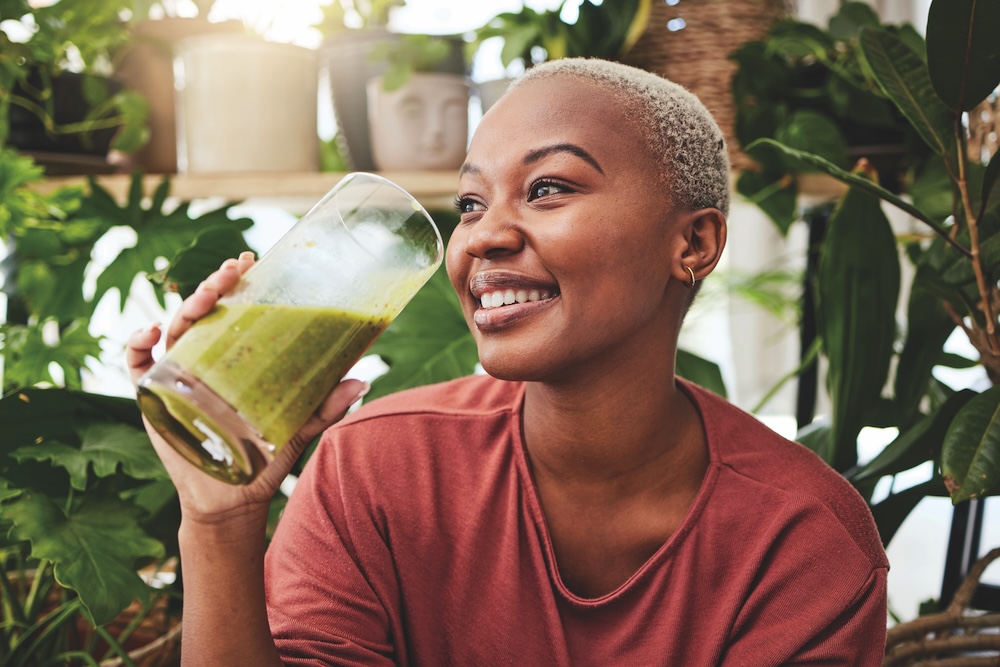
Brain-health nutrients: omega-3s, choline and antioxidants for skin and mood
The trend
Cognitive wellness is taking centre stage as consumers become increasingly aware that what supports the brain can also enhance overall vitality, mood and even skin health.
Nutrients such as omega 3 fatty acids, choline and antioxidants are gaining recognition for their role in supporting memory, focus and resilience, while supplements like creatine are emerging as tools to aid mental and physical performance.
In the UK, searches for “brain food” and “cognitive supplements” have risen sharply on platforms like Pinterest and Instagram, reflecting a growing appetite for evidence-backed strategies to nurture the mind.
Why it matters for beauty pros
Brain health can have subtle effects on the skin and overall appearance. Nutrients that support neurotransmitter function, reduce oxidative stress and promote healthy blood flow can help clients maintain steady energy, balanced mood and a radiant complexion.
For beauty professionals, understanding these links allows for a more holistic approach to wellness.
What the experts say
“Nutritional support for cognitive function falls into three key categories: structural, function and protection,” explains Perretta.
“Omega 3 fatty acids are important components of the brain, neurotransmitters need amino acids including choline, tyrosine and tryptophan, and plant antioxidants are neuroprotective.”
She reminds us that nutrients don’t act in isolation, adding, “Nutrients are nature’s multi-taskers. I never recommend people take individual vitamins or minerals. Taking an array of nutrients to support partnerships is the best way when choosing supplements. What we eat and the supplements we take have multiple synergistic roles in our physical, mental and skin health.”
Humphreys says, “DHA and EPA are crucial for brain structure and function. EPA plays a stronger role in mental wellbeing and managing inflammation. These fats are also embedded in every cell membrane, helping explain why they can influence skin, gut and overall resilience.
“Choline supports memory, while antioxidants protect against oxidative stress. Together, these nutrients may also contribute to visible benefits like skin vitality, balanced mood and stress tolerance.”
Key takeaway
Brain-supporting nutrients such as omega 3s, choline and antioxidants have benefits that extend beyond cognition – they can also influence skin vitality, mood and overall resilience. Beauty professionals can use this knowledge to help clients adopt nutrition strategies that enhance both mental clarity and physical appearance.
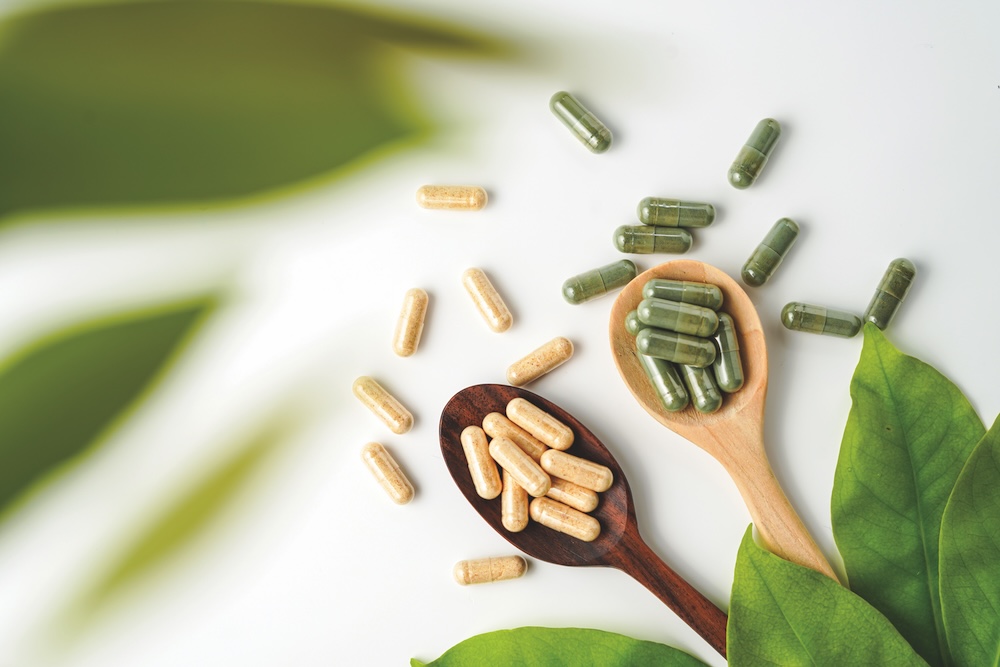
Practical guidance: how beauty pros can talk about nutrition safely
Peretta offers clear guidelines, saying, “Supplements are not designed to diagnose, treat, prevent or cure any medical conditions. Professionals should not feel compelled to make any medical claims, they should continue to seek education, and if the client is on medication they should consult their health practitioner.”
Humphreys adds, “Highlight nutrients with strong evidence and clear safety profiles. Nutrients like omega 3s, creatine or choline are easier to discuss responsibly than complex blends. When retailing supplements, ask brands for their safety data.”
The future of beauty nutrition: expert predictions for 2026
Both Perretta and Humphreys see the next few years as a period of exciting evolution in nutrition, with a focus on strategies that support overall wellbeing rather than quick fixes. Peretta sums it up: “If a trend delivers results, it stops being a trend and becomes an important way of life.”
Perretta’s forecast:
- A deeper understanding and wider exploration of prebiotics and postbiotics, moving beyond just probiotics.
- Smarter delivery systems (powders over liquids) for stability, shelf-life and user-friendliness.
Humphreys’s forecast:
- A shift toward muscle health as beauty, not just skin.
- An overarching focus on holistic, whole-body wellbeing, integrating gut, brain, muscle, mental and spiritual dimensions.
FAQs: nutrition trends beauty professionals should know
What nutrition trends are most important for beauty professionals in 2026?
The biggest trends shaping beauty and wellness this year include fibremaxxing, functional mushrooms, gut-health nutrition, fermented foods, and brain-supporting nutrients like omega-3s and choline. These trends influence digestion, inflammation, energy, mood and skin appearance; all highly relevant to client results.
What is fibremaxxing and why does it matter for skin health?
Fibremaxxing involves intentionally increasing daily fibre intake from fruits, vegetables, legumes, seeds and wholegrains. Better fibre intake supports gut health, blood sugar balance and satiety, which can translate to clearer skin, fewer breakouts and improved skin barrier function.
Are functional mushrooms actually beneficial for beauty and wellness?
Ingredients like lion’s mane, reishi and cordyceps contain bioactive compounds that may support focus, stress resilience and immune balance. These factors can indirectly influence skin appearance and overall wellbeing. Research is still emerging, so beauty pros should avoid making medical claims and encourage clients to start slowly.
How do fermented foods support the gut-skin axis?
Fermented foods introduce beneficial bacteria that can improve microbial diversity in the gut. A healthier gut can support immune function, reduce inflammation and improve nutrient absorption, all of which contribute to brighter, more resilient skin. Options include kimchi, sauerkraut, kefir and kombucha.
Which nutrients support brain health and how does this relate to beauty?
Omega-3 fatty acids (EPA and DHA), choline, amino acids and antioxidants all support cognitive function, mood and energy levels. Because the brain and skin share inflammatory and neurochemical pathways, nutrients that enhance mental wellbeing can also support skin vitality, stress tolerance and radiance.
Can beauty professionals recommend supplements to clients?
Beauty pros can discuss general wellness concepts but should not diagnose, treat or claim to cure any conditions. If clients take medication or have health concerns, they should be referred to a healthcare professional. When retailing supplements, choose reputable brands with transparent safety data.
What nutrition trends are expected to grow in the beauty industry?
Experts predict rapid growth in prebiotics and postbiotics, more stable supplement delivery systems (such as powders), and a shift toward viewing muscle health as part of beauty. Holistic, whole-body wellness (gut, brain, mood, muscle and skin) will continue to dominate the conversation.
You might also like:

